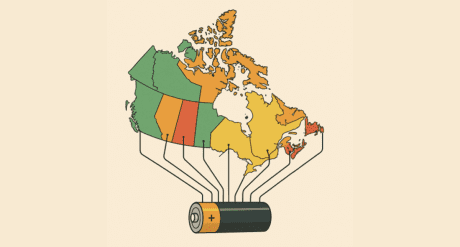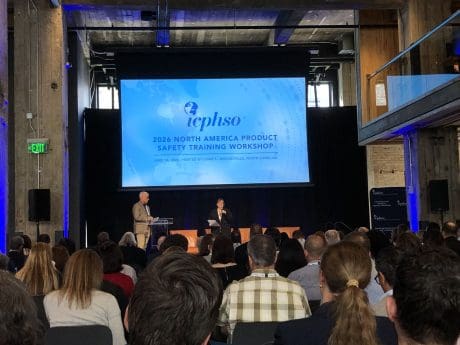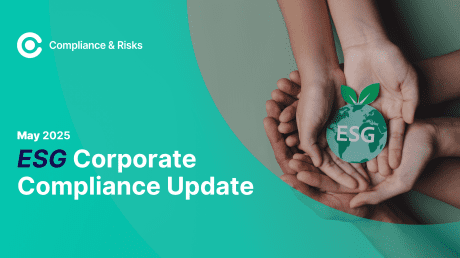
Greenwashing In The Fashion Industry: Why Transparency Is Key For Sustainable Brands

The Rise Of Greenwashing
As consumers become more aware of the environmental impact of their purchases, the fashion industry has responded with a rise in “green” products and marketing.
However, many of these claims are not backed by reliable evidence and are simply a form of “greenwashing.”
Greenwashing is a marketing tactic that involves making misleading or exaggerated claims about the environmental benefits of a product or service.
A recent international analysis of websites found that 40% of green claims made online could be misleading.
This practice has become increasingly prevalent in the fashion industry, which has a significant impact on the environment.
Unsurprisingly therefore, regulators, the media and policymakers have showed an increased interest in ensuring the validity of such claims in an effort to crack-down on businesses making unfounded environmental claims
In this blog, we will explore what greenwashing is, why it is a problem, and how governments are regulating environmental claims in the fashion industry.
The Harmful Effects Of Greenwashing In The Fashion Industry
Greenwashing in fashion refers to the practice of making misleading or exaggerated claims about the environmental benefits of a product or service.
For example, a clothing company may claim that their products are made from “sustainable” or “eco-friendly” materials, when in reality, the materials used are not environmentally friendly.
This type of marketing is intended to appeal to environmentally conscious consumers, who are willing to pay a premium for sustainable products.
However, greenwashing can mislead consumers and damage the reputation of companies that are genuinely committed to sustainability, making it harder for them to gain traction.
How Green Claims Must Be Presented
Environmental or green marketing claims are not limited to direct, written information, but include pictures, labels, logos and certificates.
Green claims can either be made with regard to a specific product or as a company-wide claim, using information on the product itself, its packaging, a company’s websites or in advertisements. In order to be transparent and verifiable for the consumer, green claims must be presented in a clear, proportionate and unambiguous manner, backed up by precise and measurable information.
The information must be based on scientific evidence and must relate to a significant environmental impact, factoring in potential side effects and trade-offs.
How Governments Are Responding To Greenwashing
In most jurisdictions, false or misleading green claims are regulated as part of the general law on consumer protection and unfair competition practices, aiming to protect not only consumers but also fellow competitors from unsubstantiated green claims. The UK Consumer Protection from Unfair Trading Regulations 2008, for example, considers a commercial practice to be unfair if it is a misleading action or a misleading omission.
The general legislation on consumer protection and unfair competition practices is however very broad, making its application to specific situations of false or misleading green claims difficult for companies as well as for authorities. To facilitate the application of those laws, many countries issue guidance materials on green claims. These guides often include definitions for vague terms such as ‘sustainable’ or ‘natural’, but they are nevertheless not binding.
At present however a trend towards binding regulation specific to green claims can be witnessed in the European Union, United States, United Kingdom and France. While the United States and the United Kingdom are currently looking into the possibility of drafting new legislation, the EU is moving fast to implement a new legal framework on the matter.
Self Regulating Codes For Environmental Claims
Not only legislators, but also non-governmental initiatives around the world deal with the issue of green marketing by means of self-regulating codes. To name but a few, the BCAP Code and the CAP Code (Broadcasting and Non-Broadcasting Advertisement), published by the Advertising Standards Authority (ASA) in the UK, contain rules on environmental claims in their chapters 9 and 11.
Similarly, Section 15 of the ASAI Code (Advertising Standards Authority for Ireland; an independent, self-regulatory body) addresses environmental claims. This concerns inter alia the issue of qualified environmental claims, absolute claims, scientific uncertainty and the omission of information.
On the international level, the representative business organization ICC (International Chamber of Commerce) addresses environmental claims in Chapter D of their general ICC Advertising and Marketing Communications Code. In 2021, in response to growing interest in environmental marketing, ICC also published a new version of its Framework for Responsible Environmental Marketing Communications.
The tailored framework now includes guidelines for climate-related claims (i.e. claims on a company’s carbon footprint, net zero etc.), circularity claims and further information on “free-of”, “recyclability” and “degradable” (i.e. biodegradable and oxo-biodegradable) claims.
ISO Standards For Environmental Claims
The International Standards Organization (ISO) developed a number of standards that companies can use as a basis to substantiate environmental claims, i.e. ISO 14040:2006 and ISO 14044:2006 on life-cycle assessment and ISO 14025:2006 on environmental labels and declarations.
These and other standards were assessed as a basis for the European Draft Directive on Green Claims. In addition, ISO Standard 14021, developed in 2016 and last updated in 2021, directly addresses the terminology, symbols, testing and verification methodologies for self-declaration of environmental claims.
The Importance Of Transparent And Authentic Environmental Claims
In conclusion, greenwashing in the fashion industry is a serious issue that can mislead consumers and create an unfair advantage for companies.
In view of the current developments, particularly in the EU, but also in the USA and UK, it is apparent that the direct regulation of green claims will gain more and more momentum in the coming years.
Therefore, it is essential for businesses to prepare for the upcoming changes and be ready to face new challenges when providing environmental information to consumers. Economic operators should assess and review any claims which might have an environmental aspect, and implement internal processes to ensure compliance.
It is important for fashion companies to develop transparent and authentic environmental claims, in order to build trust with consumers and create a more sustainable future.
Tackling Greenwashing in Environmental Claims: Regulatory Developments in the EU and Beyond
Don’t miss out on important regulatory developments in greenwashing. Download our whitepaper on regulatory developments in the EU and beyond.
Unlocking Market Access:
Accelerate your product sustainability roadmap and become a brand leader in the industry with C2P – Your key to embracing ESG & product sustainability.
Trusted by more than 300 of the world’s leading brands, C2P is an enterprise SaaS platform providing everything you need in one place to achieve your business objectives by focusing on sustainability, consumer confidence, circular economy & scalable packaging initiatives.
C2P is purpose-built to be tailored to your specific needs with comprehensive capabilities that enable enterprise-wide management of global regulations, standards, requirements and evidence.
Add-on packages help accelerate market access through use-case-specific solutions, unrivalled global regulatory content, a global team of subject matter experts and professional services.
- Match the shift in purchasing behaviour
- Reduce greenwashing concerns & reputational damage
- Re-iterate your emphasis on social and environmental product commitments
- Achieve a zero-waste circular economy – Gain a competitive edge
- Enable business continuity by informing your circular economy strategy
- Improve efficiency and enable your team to focus on business-critical initiatives
- Save time with access to Compliance & Risks’ extensive Knowledge Partner network & Global team of Regulatory Experts
- Easily demonstrate your sustainability claims and gain consumer confidence

Download Our Free Whitepaper
This white paper provides an overview of the current regulatory developments on environmental claims, outlining the most recent changes, in the EU and worldwide, aiming to tackle the practice of greenwashing.








